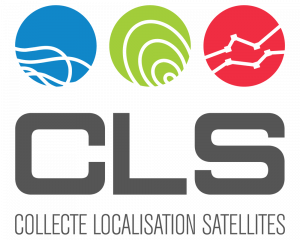
CLS (collection Localisation Satellite) is the prime contractor for this project. CLS, established in 1986, is a subsidiary of the French Space Agency (CNES), the French Research Institute for Exploration of the Sea (IFREMER), and of ARDIAN. It develops satellite services in location and environmental data collection, space oceanography and radar detection. With a turnover of90M€, a staff of 700 people in the world, and an average 10% growth over the last 10 years, CLS has developed a wide range of integrated offers to a broad range of professionals including: government, industry and the scientific community and services. CLS operates in the following sectors:
• Environmental surveillance,
• Sustainable management of marine resources,
• Maritime security,
• Offshore oil/gas industry.
CLS holds more than 25-year experience in environmental monitoring by remote sensing techniques. CLS has been acting continuously in Earth Observation (EO) projects providing services to French and European space agencies, CNES, ESA, EUMETSAT and European stakeholders like the European Union, through research programmes, FP5, 6, 7, H2020 and more recently through the operational Copernicus programme.
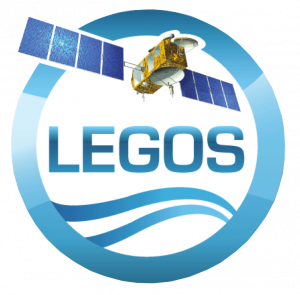
LEGOS is a multi-disciplinary research organisation , concerned with environmental research centred on physical oceanography (large scale and coastal), marine geochemistry and biogeochemistry, spatial hydrology and the dynamics of polar ice sheets. These research themes are linked by an observational approach using remote sensing from satellites. LEGOS is involved in all aspects of satellite missions, especially for altimetric satellites, from the planning and the preparation of algorithms to calibration, validation and exploitation of the results. LEGOS also maintains five observational services and networks. The scientific activities at LEGOS are grouped into four themes:
– Research in glaciology: detection and understanding of physical mechanisms of ice sheets and andtheir role in the climate system.
– Research in hydrology and satellite-based geodesy: sea level variations and global hydrology by satellite observation.
– Research in physical oceanography: a wide range of spatial and temporal scales from gravity waves (tides, response to storms) to seasonal and interannual variations of the global ocean.
– Research in marine biogeochemistry: the study of chemical and isotopic tracers, interactions between dynamics and primary production.
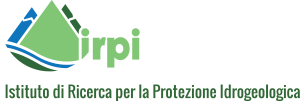
The Italian National Research Council (CNR) is the largest public research institution in Italy, the only one under the Research Ministry performing multidisciplinary activities. CNR’s mission is to perform research in its own Institutes, to promote innovation and competitiveness of the national industrial system, to promote the internationalization of the national research system, to provide technologies and solutions to emerging public and private needs, to advice Government and other public bodies, and to contribute to the qualification of human resources.
IRPI-Hydrology is involved in several projects and activities containing satellite observations. Among these activities, IRPI-Hydrology participated to “WACMOS-irrigation”, “COMMONs”, “SMOS+rainfall”, “WACMOS-MED”, “Climate Change Initiative Phase I Soil Moisture”, “RIDESAT” projects by ESA. Moreover, IRPI-Hydrology is involved in the “Satellite Application Facility on Support to Operational Hydrology and Water Management (H-SAF)” project funded by EUMETSAT, it is an Early Adopter of the SMAP (Soil Moisture Active and Passive) mission and it is involved as collaborators for the forthcoming SWOT (Surface Water and Ocean Topography) missions by NASA.
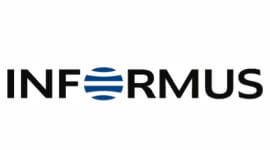
Informus GmbH (INF) is a Berlin-based private company founded in 1999 providing scientific and technical consulting services for marine, atmospheric and land based environmental applications. Clients include public and private sector organizations with a range of technical and strategic service needs, including, but not limited to:
– Analysis of user requirements in the context of applicable regulations and subsequent development of specific solution strategies, often in the field of environmental monitoring;
– Development of IT systems to support acquisition, processing and management of complex environmental data such as from in situ monitoring networks;
– Application of numerical modelling and remote sensing techniques to derive a wide range of parameters in meteorology, oceanography, and land surface studies;
– Preparation and execution of scientific projects with up to ten partners in a national or international context.
Being a small company, we closely work with a network of external experts and partner companies to strengthen our competences and capacities on a per-project basis to match clients’ needs.

The Finnish Meteorological Institute (FMI) is a research and service agency under the Ministry of Transport and Communications. FMI has the mandate of producing reliable information on the state of the atmosphere and the sea, and their characteristics and phenomena, with the aim of promoting safety and serving various needs of the public, industry and commerce, as well as contributing to scientific ends. FMI employs more than 650 people, about 300 of which are involved in research. In Finland the operational Ice Service (FIS) was founded in 1915, and in 2009 it become part of the FMI. The Service has organized to collect, combine, analyse and distribute the Baltic Sea ice information to support sea ice operations in Finland and Sweden. Through the FIS, FMI is connected to other ice services around the world, as well as large group of customers using satellite-based ice products.
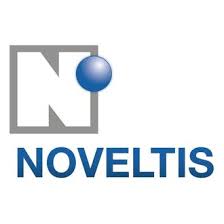
NOVELTIS, a French independent private company created in 1998, performs innovative scientific engineering studies and implements customized end-user solutions in the fields of Space, the Environment and Sustainable Development.
Our scientists develop high-tech solutions that involve top-level skills in environmental and physical sciences, in domains covering the atmosphere, oceans, and land surfaces. Our staff is expert in modelling, simulations, processing of observation data and measurements, information systems, impact assessments, decision support systems… NOVELTIS focuses its activities on innovation, in close relationship with international research laboratories. Our company supplies end-to-end services to governmental bodies and industries. NOVELTIS is also coordinator or partner in large-scale European and international projects. NOVELTIS provides R&D solutions and studies, and implements operational services:
• Project management and coordination;
• Expertise in designing innovative solutions;
• Technical studies (feasibility, development, simulation, modelling, calibration, validation);
• Data processing (optical images, radar images, signal);
• Integration of solutions (decision-making tools, information systems);
• Provision of services (impact assessment, forecast and real-time studies, decision support…).
 The University of Leeds is one of the largest Universities in the UK with over 32,000 full-time students, 7,500 staff and an annual turnover of €545 million. Leeds is among the top ten universities for research in the UK with some 3,000 full-time researchers and an annual research income of more than €120 million, of which ~10% is from EU awards. The University is the national leader in receipt of NERC funding for the last two years and has gained a number of inter-disciplinary awards spanning the natural and social science dimensions of environmental research.
The University of Leeds is one of the largest Universities in the UK with over 32,000 full-time students, 7,500 staff and an annual turnover of €545 million. Leeds is among the top ten universities for research in the UK with some 3,000 full-time researchers and an annual research income of more than €120 million, of which ~10% is from EU awards. The University is the national leader in receipt of NERC funding for the last two years and has gained a number of inter-disciplinary awards spanning the natural and social science dimensions of environmental research.
Research staff from CPOM is internationally recognised as experts in the application of satellite data to Cryospheric and Polar sciences. They have provided expert scientific support on previous ESA Altimetry missions including ERS, Envisat and CryoSat and Sentinel 3A and 3B.
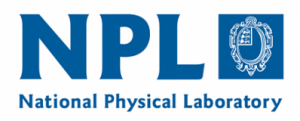 As the UK’s national metrology institute, the National Physical Laboratory (NPL) has underpinned the national measurement system since its establishment in 1900, ensuring consistency and traceability of measurements throughout the UK (and many other institutes around the world). It ensures international equivalence of the SI through representation (as the UK delegates) in committees related to the meter convention and participation within formal comparisons. The results of these comparisons and peer reviewed “standard measurement capabilities” can be found at www.bipm.org.
As the UK’s national metrology institute, the National Physical Laboratory (NPL) has underpinned the national measurement system since its establishment in 1900, ensuring consistency and traceability of measurements throughout the UK (and many other institutes around the world). It ensures international equivalence of the SI through representation (as the UK delegates) in committees related to the meter convention and participation within formal comparisons. The results of these comparisons and peer reviewed “standard measurement capabilities” can be found at www.bipm.org.
From the start, NPL’s focus has been on the practical application and industrial and quality-of-life impact of its research, with strong collaboration with industry and academia. NPL has been a thoughtleader in the metrology community, being the first national metrology institute to have all its services fully and independently accredited to ISO 9001, and most of its measurement services independently accredited to ISO 17025. NPL now provides training to others, including ESA-ESTEC, on compliance to ISO standards for measurement.
 The Alfred Wegener Institute, Helmholtz Centre for Polar and Marine Research (German: Alfred-Wegener-Institut, Helmholtz-Zentrum für Polar- und Meeresforschung) is located in Bremerhaven, Germany, and a member of the Helmholtz Association of German Research Centres. It conducts research in the Arctic, the Antarctic, and the high and mid latitude oceans. Additional research topics are: North Sea research, marine biological monitoring, and technical marine developments.
The Alfred Wegener Institute, Helmholtz Centre for Polar and Marine Research (German: Alfred-Wegener-Institut, Helmholtz-Zentrum für Polar- und Meeresforschung) is located in Bremerhaven, Germany, and a member of the Helmholtz Association of German Research Centres. It conducts research in the Arctic, the Antarctic, and the high and mid latitude oceans. Additional research topics are: North Sea research, marine biological monitoring, and technical marine developments.
The institute has three major departments:
- Climate System Department, which studies oceans, ice and atmosphere as physical and chemical systems.
- Biosciences Department, which studies the biological processes in marine and coastal ecosystems.
- Geoscientific Department, which studies climate development, especially as revealed by sediments.
 IsardSAT is a group of R&D SMEs providing, since 2006, engineering and scientific remote sensing answers to its clients with special attention to altimetry and passive microwave missions. isardSAT Group is composed of isardSAT, S.L., Barcelona headquarters, a fully owned subsidiary, isardSAT Ltd., in Guildford, and the recent spin-off company Lobelia Earth.
IsardSAT is a group of R&D SMEs providing, since 2006, engineering and scientific remote sensing answers to its clients with special attention to altimetry and passive microwave missions. isardSAT Group is composed of isardSAT, S.L., Barcelona headquarters, a fully owned subsidiary, isardSAT Ltd., in Guildford, and the recent spin-off company Lobelia Earth.
isardSAT main fields of activity include scientific-technologic projects in the Earth Observation field, developing on-board and on-ground algorithms to process microwave instruments data; scientific applications with the data obtained by EO instruments mainly around different hydrological applications; and services using Earth Observation data and climate projections for the assessment of vulnerabilities, risks and opportunities.
The Space & Technology team at isardSAT is involved in the design, calibration, and maintenance of civil remote sensing instruments, ranging from prototyping and development of algorithms for data processing to calibration after launch and maintenance of the instrument’s software until decommissioning, and is continuously improving its processing software well after that decommissioning phase.
IsardSat joined the project in 2024 for the “FDR4ALT follow-on” activity.

The PosiTim vision and mission is to become the leading GNSS solution and service provider in the high accuracy GNSS market. Prime focus is to become a centre of excellence in the high accuracy GNSS world providing GNSS related POD, consultancy and training to key customers in the challenging high accuracy GNSS market.In our market segment it will be of prime importance to retain our experts and their expertise whilst at the same time enhancing our knowledge base by attracting and educating new “high-potential” employees. Careful people and knowledge management will ensure the sustainability of our business model. Key for achieving our goals will be to attract, hiring, and educating leading scientist in the high-accuracy GNSS field. The selected company name “PosiTim” is based on the important GNSS related words of “Positioning” and “Timing”. In addition the word “PosiTim” is quite similar to the word “Positive” which reflects the PosiTim spirit and attitude.
PosiTim joined the project in 2024 for the “FDR4ALT follow-on” activity.
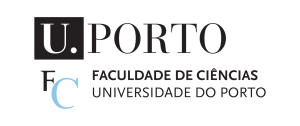
The Faculty of Sciences of the University of Porto (FCUP) aims at generating and disseminating knowledge in science and technology in order to contribute to the Grand Global Challenges faced by today’s society. It is positioned as a High Education Institution of excellence in Exact, Natural and Computer Sciences and in their technological applications, providing a multidisciplinary background that allies passion for discovery with academic rigor and technological pragmatism. It pursues RD&I activities to provide excellence in teaching and in science & technology development, boosted by the diversity of its scientific community and through international collaborations. FCUP perceives its insertion into society as a third dynamic pillar through continuing education, dissemination of science & technology, and knowledge exchange and valorisation through community partnerships/consultancy, and intends to imbue in its students the ability to apply science & technology towards contributing to a sustainable world, aligned with the Goals of the 2030 Agenda for Sustainable Development of the UN. FCUP hosts six departments comprising highly-qualified teaching/research staff, providing more than 70 teaching programmes at undergraduate and postgraduate levels. FCUP’s staff is committed with RD&I within 17 high-performing associated Research Units. FCUP and its associated Research Units intend to reinforce its contribution to Portuguese excellence in High Education.
The FCUP participants in this project have long experience in Satellite Altimetry, in particular on the environmental corrections, with focus on the Wet Tropospheric Correction.
The Unviersity of Porto joined the project in 2024 for the “FDR4ALT follow-on” activity.